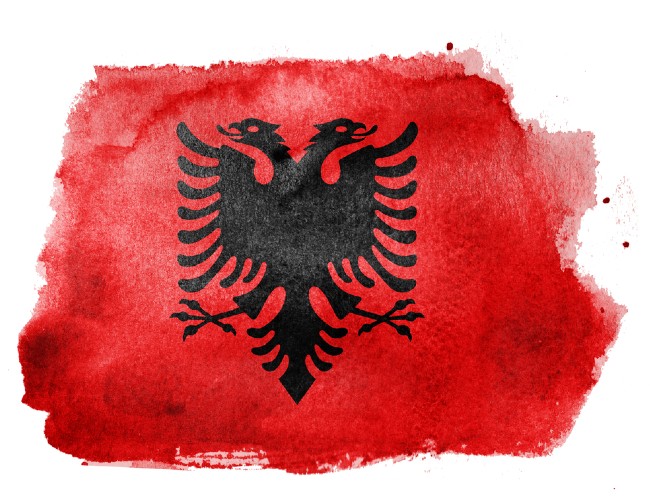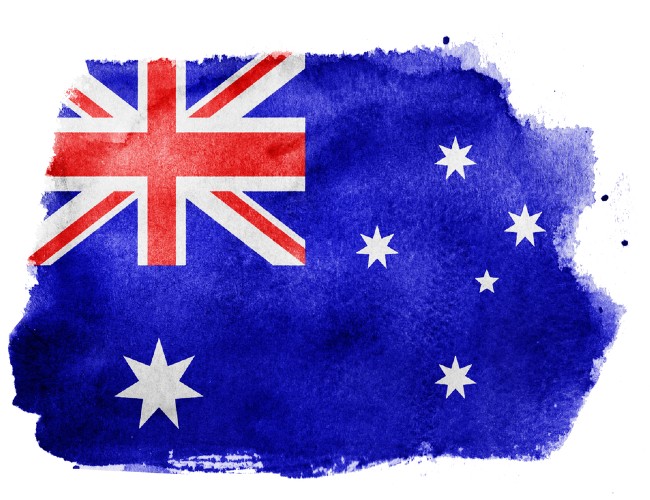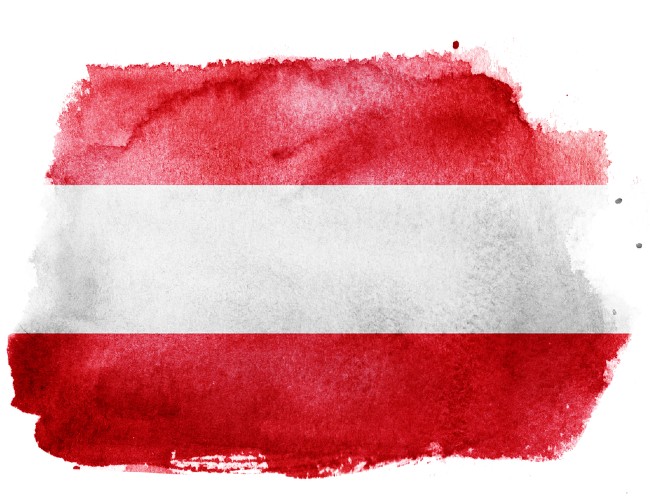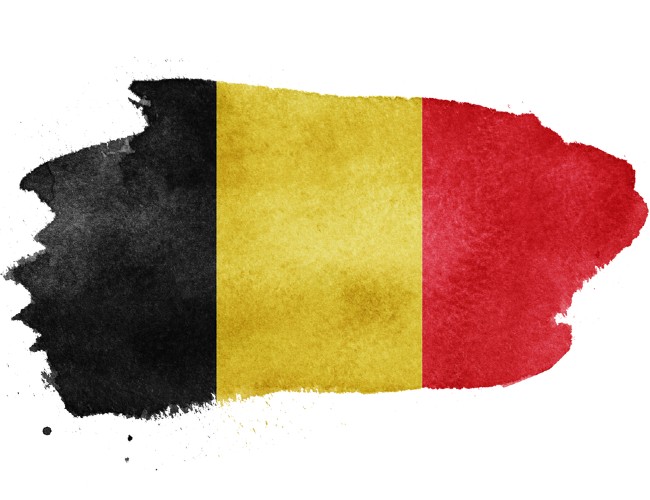What is the Eurovision Song Contest?
Started way back in 1956 as a way of drawing a fractured Europe back together with the healing power of music, the Eurovision Song Contest, or Concours Eurovision de la Chanson – the contest is telecast in both English and French – is open to all active members of the European Broadcasting Union, which oversees the competition.
Each country is permitted to submit one three-minute song to the contest – a song which is selected by a variety of means, usually a winner-takes-all competition such as Sweden’s renowned Melodifestivalen – which they perform in one of two semi-finals in the hopes of making it to the glittering grand final.
Only six countries have direct entry into the grand final:
- The Big Four who fund most of the contest – UK, Germany, France and Spain
- The host country (which is the winner of the previous year’s contest)
- Italy, who didn’t take part for many years and was re-admitted in 2011 after a 14 year absence (it was one of seven countries that competed in the first event), making the Big Four the Big Five.
The winner is chosen by a 50/50 mix of viewer votes (you cannot vote for your own country) and a jury of music industry professionals in each country, a method which was chosen to counter the alleged skewing of votes based on political and/or cultural lines when voting was purely the preserve of viewers at home.
Past winners include, of course, ABBA in 1974 with “Waterloo” and Celine Dion who won for Switzerland in 1988 with “Ne partez pas sans moi”.Above all though, the Eurovision Song Contest is bright, over the top and deliciously camp, a celebration of music, inclusiveness and togetherness that draws annual viewing figures in the hundreds of millions.
ALBANIA: “Karma” by Anxhela Peristeri
THE ARTIST
Anxhela Peristeri, crowned as this year’s Albanian representative to Eurovision by virtue of winning the 59th edition of Festivali i Këngës, is the living, breathing, and handily as it turns out, singing embodiment of if at first you don’t succeed, try, try and try again.
This is true not only when it comes to going to Eurovision – in 2001, Peristeri entered Festivali i Këngës with the song “Vetëm ty të kam” to no success (though to be fair historically Albania has only performed in Eurovision since 2004 but shhhh don’t rain on the obviously convenient narrative) – but when it comes to Kënga Magjike, an annual singing contest staged by the Albanian television broadcaster Televizioni Klan.
In 2016, fresh from winning the premier season of Your Face Sounds Familiar, Peristeri entered Kënga Magjike with the songs “Genjështar” which gave her a none too shabby second placing; fast forward to 2017 (ah, what a difference a year makes!) and she triumphed with “E Çmëndur”, winning the 19th season of the contest. (We should leave the story there, suffused as we are in the glow of winning artistry but it has to be said that Peristeri returned to the show in 2019 placing third which is still quite respectable but not a continuation of the triumph of two years earlier.)
Now, of course Peristeri, born in 1986 in the city of Korçë to a family of Eastern Orthodox faith, has climbed the summit of Albanian musical success still higher and is ready to make her presence felt on the pan-European stage … will it be laurel wreaths and winning adoration all over again?
THE SONG
If “Karma” sounds devilishly dark and self-recriminatory, that is because it is a song bathed in the aftermath of some terrible event that has left Peristeri thinking some very existentially broken things.
“God doesn’t forgive me
The world fell on me
You ran away from me, my friends ran away
There is no light
God doesn’t forgive me
I yelled voiceless
Bundle tears in my hand
They are rusty
I looked for you through empty hearts
And realized nothing seduces me
I am alone
Yes, I am alone.”
So, not exactly skipping down the road whistling happily to herself about the whimsicalities of life, right?
Not even a little bit, but while Peristeri might be lost in a Godless world of pain, we are treated to a passionately, perfectly overwrought song, a ballad wrapped in pain, the kind from which there is no going back.
It will undoubtedly make for a stunning stage performance, the kind of song that will stop people (assuming there are some in the auditorium which it is planned there will be but in the age of COVID, who knows what will happen on the night?) and turn heads because who of us hasn’t been in a place this wretched and wished someone had the music to match?
Okay, we likely haven’t wished for an appropriate soundtrack but Peristeri, a talented singer-songwriter who was always committed to keeping the song in her native tongue, has given us one and it could well see not only make it from her semi-final to the big event but place quite highly in the grand final itself.
Albania performs in semi-final 1 (Thursday 20 May 2021).
AUSTRALIA: “Technicolour” by Montaigne
THE ARTIST
If you’re after a uniquely individual musical style mixed with a vibrant, likeable persona and an innate ear for meaningful, thoughtful, highly-listenable pop then Montaigne should be your artist of choice.
The talented Sydneysider, known to her parents and friends as Jess Cerro, has been recognised for her unique place on the Australian pop landscape, gathering up awards and achievements including placing songs on Triple J Radio’s immensely popular Hottest 100, an ARIA award for Best Breakthrough Artist and a nomination for Best Female Artist in 2016.
But while awards are nice, very nice in fact, because who doesn’t love a pat or three on the back for their artistic output, Montaigne (named, so we are told, after a 16th century French renaissance philosopher) has also done superbly well in the fickler court of public opinion, with her debut album, Glorious Heights, scaling the charts to a heady #4 and her sophomore effort COMPLEX (2019) garnering all kinds of breathlessly good reviews.
She can even, rather helpfully in a live contest Eurovision where stage performance is pretty close to everything, damn good in contest, or so says The Music who said of a recent Sydney Show – “Her performance will go down as one of the best concerts of the year, without a doubt.”
With that his much talent, originality, performing nous and a unique sensibility custom built to help her stick out from the crowd, surely Montaigne, and thus Australia with her, is destined for great things at Eurovision?
THE SONG
One of the more interesting parts of Eurovision 2021 is that we are being given the rare opportunity to see the same artist sing two wholly different official songs.
Montaigne is one of the artists chosen to carry over to this year’s contest, and has swapped last year’s song “Don’t Break Me” which we described as “emotion writ large”, for the far more upbeat “Technicolour”, a track which some in Australia have felt is not as strong an effort as its big, dramatic predecessor.
Officially debuted at Mardi Gras 2021 in Sydney, “Technicolour” is a bright, emotion-filled vibrant pop song that bounces between brooding, building verses, spoken word bridges and a surging goosebump-inducing chorus, paired with the kind of inspirational lyrics that make you want to take on the world, safe and bolstered in the shared humanity of being honest and true to yourself and others.
It may not grab you completely when you first hear it but it is a stronger grower, the sort of song that will be repeating in your mind for days and weeks after and which will ensure the artist, and thus Australia, do very nicely at this year’s contest, helped along by Montaigne’s voice which is all kinds of affectingly powerful emotion.
Australia performs in semi-final 1 (Tuesday 18 May 2021).
AUSTRIA: “Amen” by Vincent Bueno
THE ARTIST
Moving between Austria and the Philippines, where he has established a thriving musical career after winning competitions or making a splash competing in one – he won Musical! Die Show (Musical! The Show) in 2008 and competed successfully on ASAP XV on Philippine TV in 2010, Vincent Bueno (returning in 2021 for Austria to Eurovision), started performing with his dad and making his own music at just the age of six.
A tenor, whose voice Wikipedia rather charmingly (or not) describes as “smooth, mellow, and sometimes mildly abrasive”, Bueno kicked off his professional career in his late teens in 2003, training at the Vienna Conservatory in Musical Entertainment Theater – Musical and graduating in 2007.
It’s training that obviously stood him in good stead with Musical! Die Show (Musical! The Show) demanding a great deal of its entrants who, thanks to the program’s theatrical focus, have to do far more than simply belt out a song.
Bueno nailed his performances including “I Wanna Be Like You” (Jungle Book), “Superstar” (Jesus Christ Superstar) and a German language take on “Supercalifragilisticexpialidocious!” from Mary Poppins, earning some effusive accolades, making it onto Dancing Star (He can sing! He can dance!) and opening his own production studio SUITCASE MEDIA which sets him up nicely to be firmly in control of his own career.
But you can’t control the good voters of Europe, so has Bueno got what it takes to win them over?
THE SONG
Vincent Bueno is also back for another figurative bite at the Eurovision cherry but the truth is that, like all the contest’s returnees, this will be his first actual performance after last year’s cancelled event.
His new song “Amen” is a powerful stomper of a song which mourns the end of a relationship, suffused with an understandable sadness at its end but also a consternation that his onetime beloved has worked so furiously hard to bury any and all signs of their love.
When lyrics like “And I never thought you’d bury me & you / No I never thought we’d die” and “It’s just another funeral to you”, it’s clear that whatever went wrong, it was catastrophically bad, and Bueno, who voice encapsulates all the emotion in the world, brings it so searing regretful life over music that captures how devastating the end of such a passionate love affair would be.
“Amen” is one of those songs that will command hushed attendance, thanks to a arresting combination of thunderously emotive music and singing and lyrics so sharp they cut the heart in two; look for Austria to do very well in this year’s contest.
Austria performs in semi-final 1 (Thursday 20 May 2021).
AZERBAIJAN: “Mata Hari” by Efendi
THE ARTIST
28-year-old Efendi, the latest in a long and illustrious line of starred Azerbaijani pop performers, knows her way around a singing contest.
A veteran of of programs such as Yeni Ulduz, Böyük Səhnə, The Voice of Azerbaijan and Kazakh-based international singing competition Silk Way Star – she placed third all three which is rather poetically symmetrical – she nailed in 2019 where, according to her official Eurovision bio, “she successfully represented Azerbaijan at the Voice of Nur-Sultan, again in Kazakhstan.”
Tired of the rule of three, Efendi or Samira Azer gizi Efendiyeva to take the full name on her passport, stared down four unsuccessful attempts to become her country’s representative at Eurovision, coming out on top on her fifth attempt, and even more importantly, being re-selected for 2021 after the 2020 event succumbed, like so much else, to the viral spread of COVID-19.
After all of those public competitions and a career spent in the public eye, Efendi must have what it takes to better her perennial third placing and take Azerbaijan up to the lofty pop heights it traditionally enjoys at the contest?
THE SONG
Not satisfied with evoking one great female icon of history in last year’s “Cleopatra”, Efendi is back with “Mata Hari”, a song that doesn’t so much celebrate the possibly spy – her guilt or innocence rests on which version of the historical account you believe; was she a World War 1 Germany spy or a convenient French scapegoat? – as invoke her alleged spycraft when it comes to affairs of the heart.
In a song that actually references Cleopatra (Just like Cleopatra / The Army Of Lovers / I start a fire), “Mata Hari” is as catchy, if not more, than last year’s memorable effort, employing traditional Azerbaijani musical influences with the kind of cutting edge pop that is increasingly at home at Eurovision.
Ending with a manic, foot-stomping furiously-energetic dancefest, “Mata Hari” is going to make for one hell of a dancefloor filler number, the sort of track that will have people up and dancing (assuming that is even allowed; of the many things COVID has taken from us, singing along and dancing are two notable casualties when it comes to live entertainment) and voting up a frenzy from home.
It’s impossible to see Efendi not going to aboslute town on stage with a song that screams out for a memorable performance and which will no doubt ensure Azerbaijan places highly in the final standings.
Azerbaijan performs in semi-final 1 (Tuesday 18 May 2021).
BELGIUM: “The Wrong Place” by Hooverphonic
THE ARTIST
How could you not like a band called Hooverphonic, an artistic moniker that suggests a The Jetsons-esque futuristic sense of fun and a retro ’50s sensibility all in one.
Clearly you cannot not like them because the band, composed, currently at least (personnel changes have been many over since 1995 when the band first formed) of Geike Arnaert, Raymond Geerts and Luka Cruysberghs, have been around for 25 years, blurring, notes their Eurovision bio, “the lines between symphonic soundscapes and highly infectious pop tunes.”
While that mix can run the risk of sounding gimmicky with a “Switched On Classic” vibe no one wants these days, it works for the band who changed their name so owners of vacuum cleaners wouldn’t get confused – there was no “phonic” at the end of the name at first – and whose music has placed in TV shows commercials and movies worldwide including Mad About You, Vinegar & Salt, Eden, 2Wicky, Badaboum, and Romantic.
So being chosen to represent Belgium for the 2020 contest was a natural follow-on for a band with such international presence and also a resonant way of marking the 20th anniversary of their landmark album The Magnificent Tree, and while they won’t have a musical milestone to mark next year, Belgium’s Flemish broadcaster Vlaamse Radio- en Televisieomroep (VRT) and French-speaking broadcaster Radio télévision belge de la communauté française (RTBF)have picked them to come back in 2021.
But 2020 is the focus for the moment so does “Release Me”, described as “a universal song about saying goodbye, elegiac acceptance and coming to terms with finality”, have what it take to make Belgium proud?
THE SONG
The fourth member of the returnees set in this one review set alone, Hooverphonic have swapped the ethereal gorgeous “Release Me”, which appealed with a quiet, moving power for the more robust sounds of “The Wrong Place” featuring newly-returned founding singer Geike Arnaert (she replaces last year’s vocalist Luka Cruysberghs who was in the band from 2018 to 2020).
While likely not the song to cover Belgium in Eurovision-winning glory, there is a brooding sensibility to “Wrong Place”, formed by a mid-fi melody full of regret at poor decisions made and lyrics that rue the next-morning consequences of a one-night stand:
“You’re in the wrong place
You’re lying next to me.
I don’t know where to hide
I see your smiley face
that makes me wanna cry.”
The band has said “Wrong Place” wasn’t written specifically for Eurovision, but it does evoke one of the prevailing themes of recent years which is love gone wrong, a very postmodern mindset that seems to have replaced the breathless romantic idealism and hope of years past.
While it may not win Eurovision for Belgium, it’s a song very much much in keeping with the darker zeitgeist of the COVID years and one which captured some striking emotion and the kind of humanity which always makes for an arresting piece of pop and no doubt beguiling live performance.
Belgium performs in semi-final 1 (Tuesday 18 May 2021).
EUROVISION 2021 EXTRA!
At this point, we’re five songs into a 39 song odyssey of Eurovision goodness, and while the remaining 32 songs will be covered in the next six weeks, the following video gives a chance to get a peek at the full slate of songs this year, from new artists and those returning from the 2020 contest …











Hello Andrew
Great to see your annual review of the songs.
My favourite of that bunch is Austria by far. Austria currently sits on top of my entire contest. Powerful ballad with a few theme variations to keep it interesting, great lyrics and vocals.
Shame it’s not doing better in the opinion polls. I hope good staging will see this in the final and in the Top Ten.
Albania also powerful but slightly overdose on the Balkan drama segment (something I do often enjoy in the right context and doses) . It often feels screaming instead of singing. I do enjoy it when it comes on the spotify playlist but don’t seek it out to play. Unsure it will do well.
Azerbijan catchy but – like some songs in this year’s recycling of artists – somewhat has a recycled-Cleopatra feel. Not unpleasant but I doubt it will go far.
.
Belgium is one of the songs that is better than the 2020 offering. It stands out from the crowd and will mainly have to struggle the backlash against the group for not singing “Love shine a Light” with the rest of the class of 2020 and for some arrogant remarks the men in the band have been reported for.
That leaves Australia, an obscure song that has grown on me. Great to see Montaigne on stage in the videos for the song on youtube. It never fails to make me tab my toes when I ear it. My second favourite of this lot.